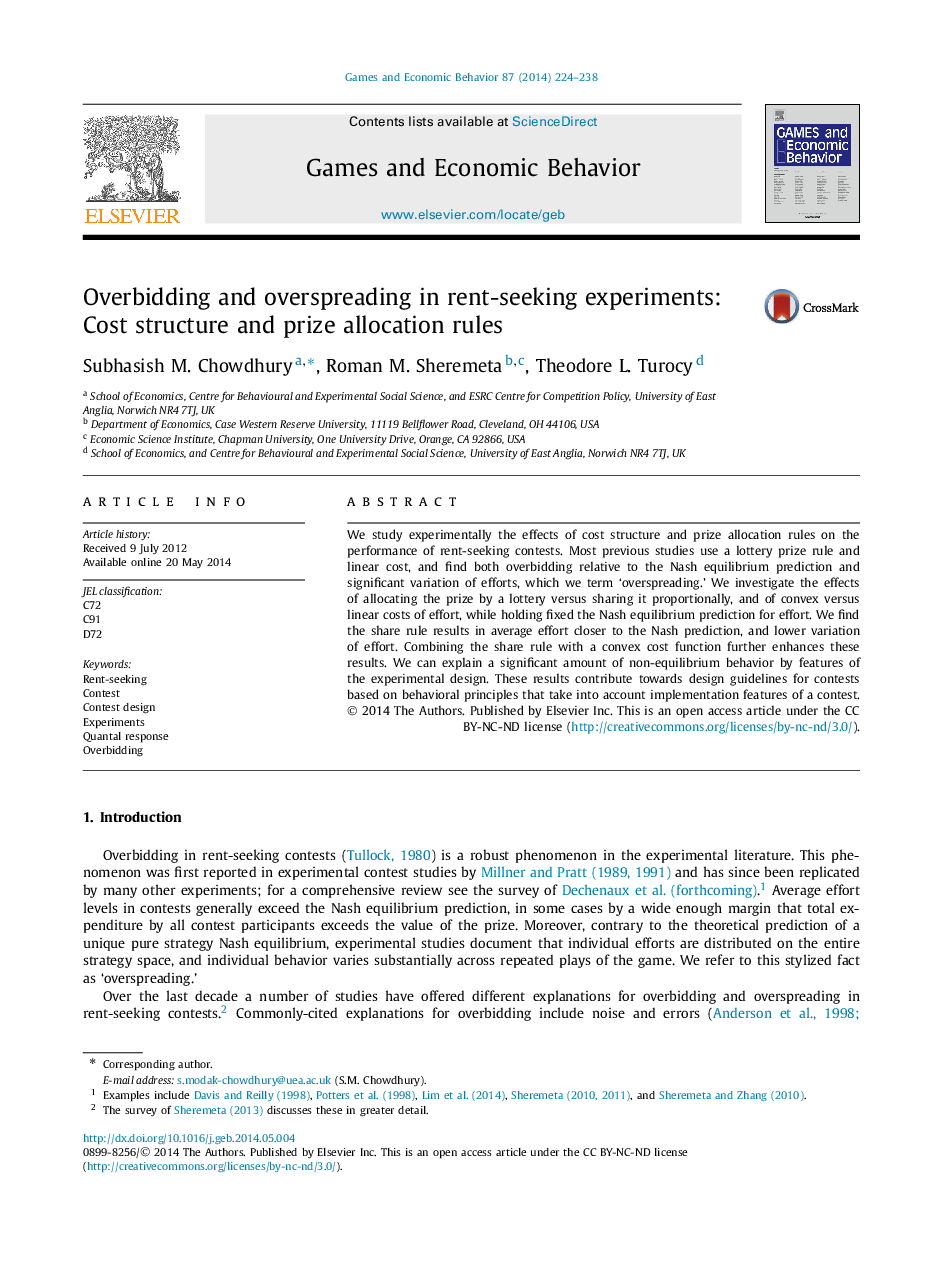| Article ID | Journal | Published Year | Pages | File Type |
|---|---|---|---|---|
| 5071855 | Games and Economic Behavior | 2014 | 15 Pages |
Abstract
We study experimentally the effects of cost structure and prize allocation rules on the performance of rent-seeking contests. Most previous studies use a lottery prize rule and linear cost, and find both overbidding relative to the Nash equilibrium prediction and significant variation of efforts, which we term 'overspreading.' We investigate the effects of allocating the prize by a lottery versus sharing it proportionally, and of convex versus linear costs of effort, while holding fixed the Nash equilibrium prediction for effort. We find the share rule results in average effort closer to the Nash prediction, and lower variation of effort. Combining the share rule with a convex cost function further enhances these results. We can explain a significant amount of non-equilibrium behavior by features of the experimental design. These results contribute towards design guidelines for contests based on behavioral principles that take into account implementation features of a contest.
Related Topics
Social Sciences and Humanities
Economics, Econometrics and Finance
Economics and Econometrics
Authors
Subhasish M. Chowdhury, Roman M. Sheremeta, Theodore L. Turocy,
